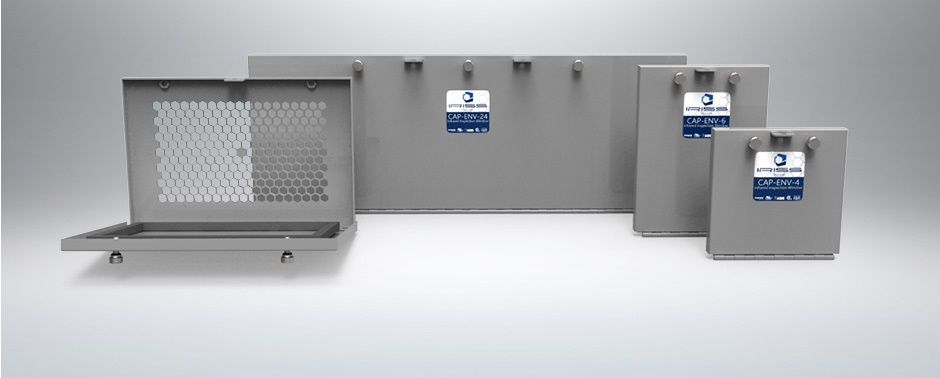
Increasingly, electrical systems are being fitted with thermal imaging windows at the point of manufacture. These devices allow the health of the electrical system to be checked while energised without endangering the workforce. It is a move supported by the IEEE whose Recommended Practice for Electrical System Design Techniques provides a framework for safety to be addressed at OEM level.
A US manufacturer of sled substations, used for power supply and distribution in underground mines, adopted this policy several years ago and had been using calcium fluoride infrared windows but these were frequently being damaged during transportation from the factory to the customer site.
While fluoride crystal windows may be an appropriate choice for undemanding applications and are certainly the best option where very high temperatures are involved, they are totally unsuitable for other harsh industrial environments. These limited-life products easily shatter, especially in the presence of vibration. Even an electrician slamming an enclosure door can cause this type of window to fracture.
Many crystal windows are coated to improve their durability but if that coating does not cover all the facets, including the edges, water ingress will ultimately shorten its life. In addition, over time, airborne contaminant absorption affects crystal transmission rates in the infrared spectrum, compromising reliability.
For the US sled manufacturer, the vulnerability of crystal windows was not only incurring replacement costs but also jeopardising its reputation. For its mining customer, this was a niggling warranty issue that introduced installation delays as windows had to be replaced in the field. The OEM on the other hand had no such cover. The windows were only warranted for manufacturing defects so the replacement cost came straight off the bottom line.
The lead engineer with the US sled manufacturer was therefore given the task of investigating alternatives and ultimately chose a more durable infrared window.
The IRISS CAP-ENV is suitable for thermal inspection of energised equipment in the visual, UV and all three infrared wavelengths but what sets this product apart from other polymer windows is a stainless steel housing complete with a reinforced, lockable door which is environmentally sealed to IP67/NEMA 6.
This design allows accurate quantitative and qualitative measurements to be taken from live electrical systems in the most hostile of conditions. IRISS CAP-ENV is therefore suitable for use in offshore, onshore or marine applications, exposed industrial environments and in climates characterised by temperature extremes. It is also the best choice for mines.
The benefits of the IRISS IR transmissive polymers for industrial are already proven. The materials are unaffected by mechanical stress and are shatterproof. They maintain a fixed and stable transmission rate even when exposed to humidity, moisture, seawater and broad spectrum of acids and alkalis.
The addition of an environmentally sealed door on the IRISS CAP-ENV system, allows these qualities to be complemented by another layer of application security, creating a supremely reliable data collection port for tough applications.










National Gas receives funding to develop Gravitricity underground hydrogen storage system
One single rock salt mine - Winsford - has 23 <i>MILLION </i>cubic metres of void and even allowing for 10% of that void set aside for hazardous waste...